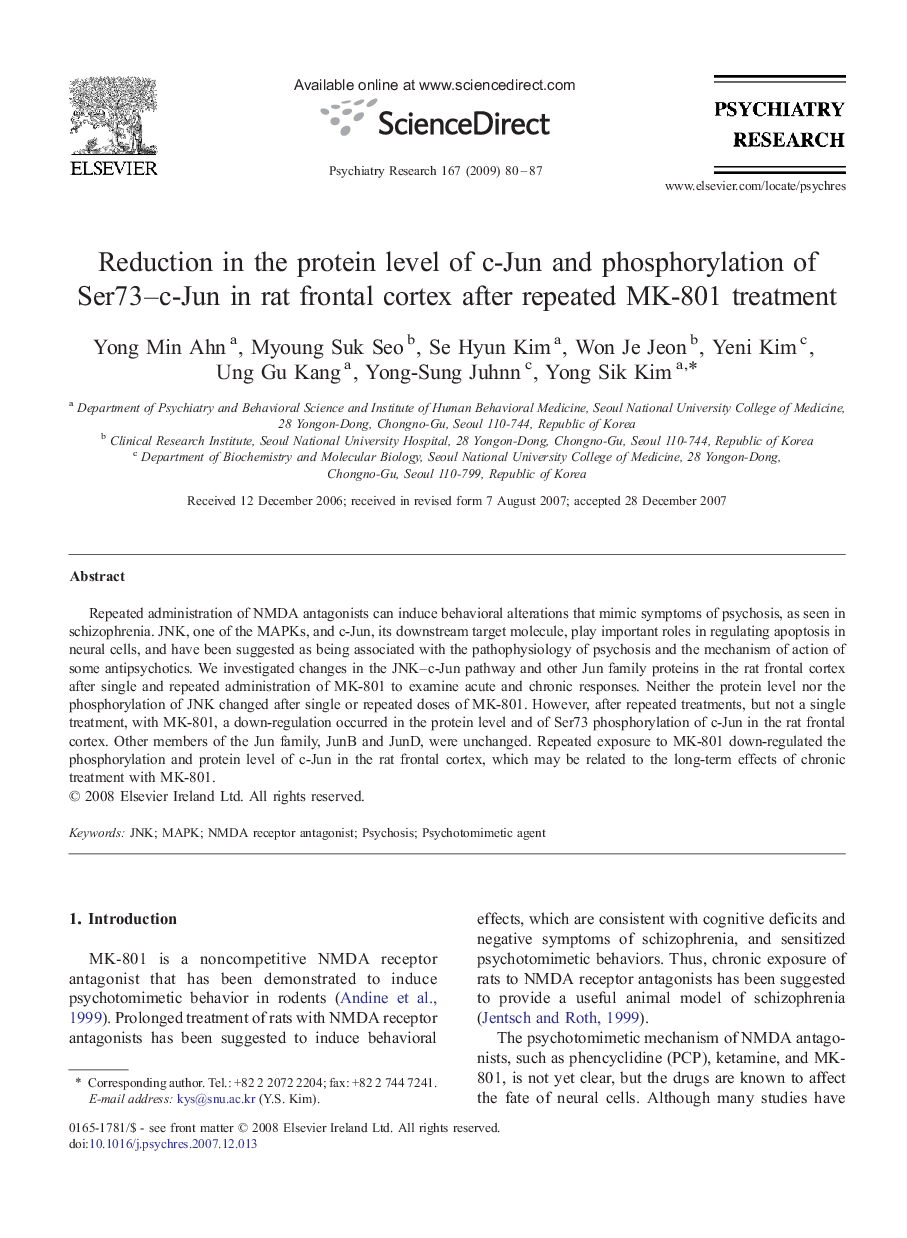| Article ID | Journal | Published Year | Pages | File Type |
|---|---|---|---|---|
| 333916 | Psychiatry Research | 2009 | 8 Pages |
Repeated administration of NMDA antagonists can induce behavioral alterations that mimic symptoms of psychosis, as seen in schizophrenia. JNK, one of the MAPKs, and c-Jun, its downstream target molecule, play important roles in regulating apoptosis in neural cells, and have been suggested as being associated with the pathophysiology of psychosis and the mechanism of action of some antipsychotics. We investigated changes in the JNK–c-Jun pathway and other Jun family proteins in the rat frontal cortex after single and repeated administration of MK-801 to examine acute and chronic responses. Neither the protein level nor the phosphorylation of JNK changed after single or repeated doses of MK-801. However, after repeated treatments, but not a single treatment, with MK-801, a down-regulation occurred in the protein level and of Ser73 phosphorylation of c-Jun in the rat frontal cortex. Other members of the Jun family, JunB and JunD, were unchanged. Repeated exposure to MK-801 down-regulated the phosphorylation and protein level of c-Jun in the rat frontal cortex, which may be related to the long-term effects of chronic treatment with MK-801.
